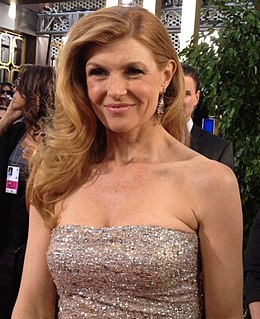A Quote by Joe Mantegna
I wouldn't be surprised if some day, they put the Simpsons in the Smithsonian. It's become part of our culture, those characters.
Quote Topics
Related Quotes
In a culture fueled by burnout, a culture that has run itself down, our national resilience becomes compromised. And when our collective immune system is weakened, we become more susceptible to viruses that are part of every culture because they're part of human nature - fear-mongering, scapegoating, conspiracy theories, and demagoguery.
The desert takes our dreams away from us, and they don't always return. We know that, and we are used to it. Those who don't return become a part of the clouds, a part of the animals that hide in the ravines and of the water that comes from the earth. They become part of everything. They become the Soul of the World.
Perhaps the worst example of Smithsonian contempt for Jesus Christ is seen in its 1994 publication of a coffee-table book entitled Smithsonian Time Lines of the Ancient World ... This flagrant display of religious bigotry and discrimination in a book officially sponsored by the Smithsonian is intellectually and academically dishonest.
There are so many women out there who are single moms, really not by choice, and doing it and making it work every day. I think it's becoming much more a part of our culture and I hope that it will become more accepted and that those women are going to be more and more appreciated, respected and supported.
The foreign audiences are somewhat surprised and happy to find an American film that asks questions about American culture. There's a certain kind of cultural imperialism that we practice. Our films penetrate every market in the world. I have seen and have had people reflect to me, maybe not in so many words or specifically, but I get the subtext of it - they're somewhat charmed and surprised and happy to see an American film reflect on our culture. Because they see other cultures reflect on our culture but they don't see US culture reflecting on itself in quite the same way.
If you look at that incredible burst of fantastic characters that emerged in the late 19th century/early 20th century, you can see so many of the fears and hopes of those times embedded in those characters. Even in throwaway bits of contemporary culture you can often find some penetrating insights into the real world around us.
Since the purpose of reading, of education, is to become good, our most important task is to choose the right books. Our personal set of stories, our canon, shapes our lives. I believe it is a law of the universe that we will not rise above our canon. Our canon is part of us, deeply, subconsciously. And the characters and teachings in our canon shape our characters--good, evil, mediocre, or great.
Like everyone is either, "I grew up with it," or "I loved it," or loved them now. And when you watch The Muppet Movie now, it is so current. It's like The Simpsons before The Simpsons. It's not as cynical as The Simpsons would be but it's self-aware and there are a billion jokes, it breaks the fourth wall every five minutes, it's astounding, it's awesome. It's very exciting to be a part of that.
One of the things when you write, well the way I write, is that you are writing your scenario and there are different roads that become available that the characters could go down. Screenwriters will have a habit of putting road blocks up against some of those roads because basically they can't afford to have their characters go down there because they think they are writing a movie or trying to sell a script or something like that. I have never put that kind of imposition on my characters. Wherever they go I follow.




































